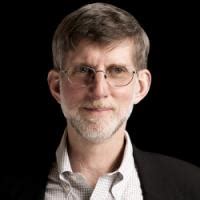A Quote by Diane Ackerman
Poetry reminds us of the truths about life and human nature that we knew all along, but forgot somehow because they weren't yet in memorable language.
Related Quotes
Durable, memorable poetry is usually alert to complexity. A really good poem gives you a reason to read it 20 times, because the language in a good poem is doing a lot of work emotionally and a lot of work intellectually. That means durable poetry can help us think about complexity, can help us resist easy answers and help us step back. And it can help us sometimes calm down, and sometimes it can help us stay upset.
Biblical social scientists have an advantage because they know truths about human nature. Those who dismiss the Bible and create surveys that don't measure crucial factors are the ones who have closed minds. Sometimes the Bible gives us clear answers and sometimes it doesn't, but it always helps us to ask the right questions.
We believe we can also show that words do not have exactly the same psychic "weight" depending on whether they belong to the language of reverie or to the language of daylight life-to rested language or language under surveillance-to the language of natural poetry or to the language hammered out by authoritarian prosodies.
The wonderful thing about books is that they allow us to enter imaginatively into someone else’s life. And when we do that, we learn to sympathize with other people. But the real surprise is that we also learn truths about ourselves, about our own lives, that somehow we hadn’t been able to see before.
We say then, that Christianity is adapted to the intellect, because its spirit coincides with that of true philosophy; because it removes the incubus of sensuality and low vice; because of the place it gives to truth; because it demands free inquiry; because its mighty truths and systems are brought before the mind in the same way as the truths and systems of nature; because it solves higher problems than nature can; and because it is so communicated as to be adapted to every mind.







































